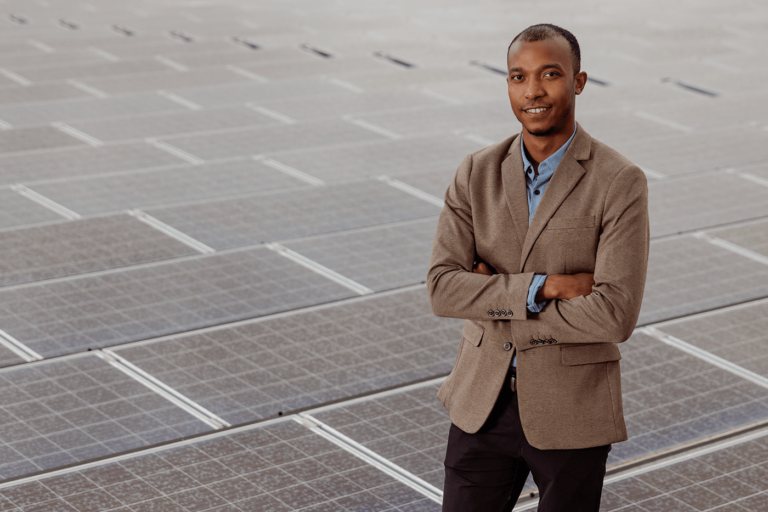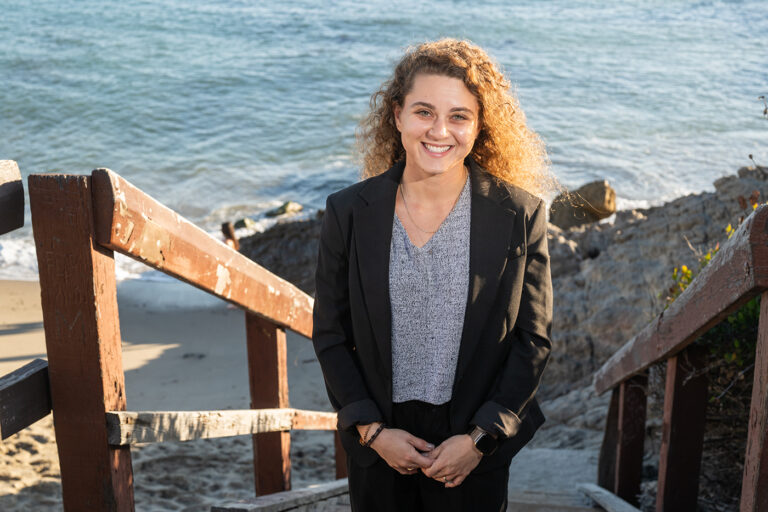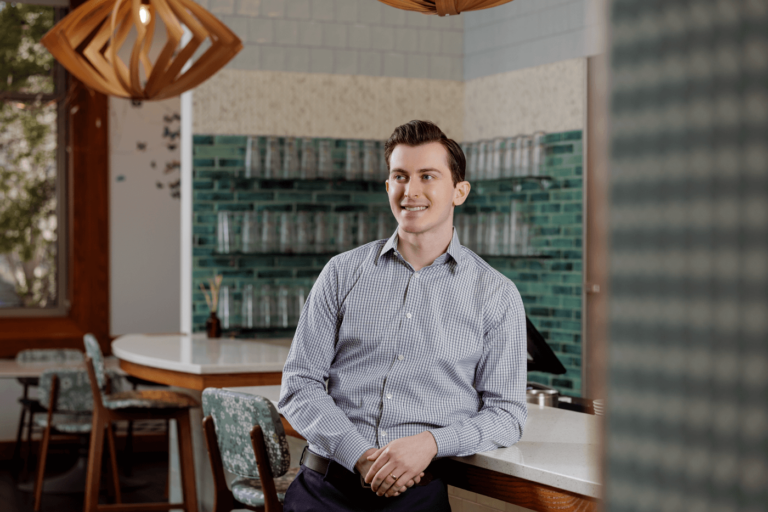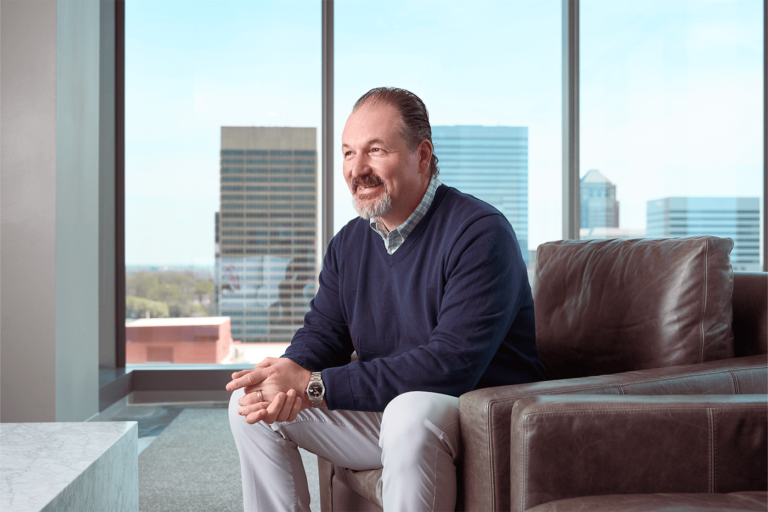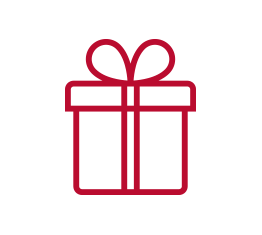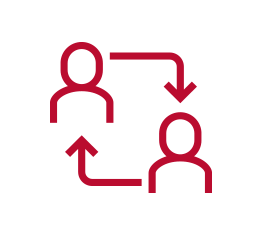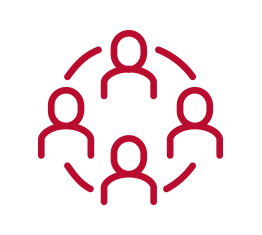Leading through connection: From research to advocacy
Tiffany Zhu, Class of 2026
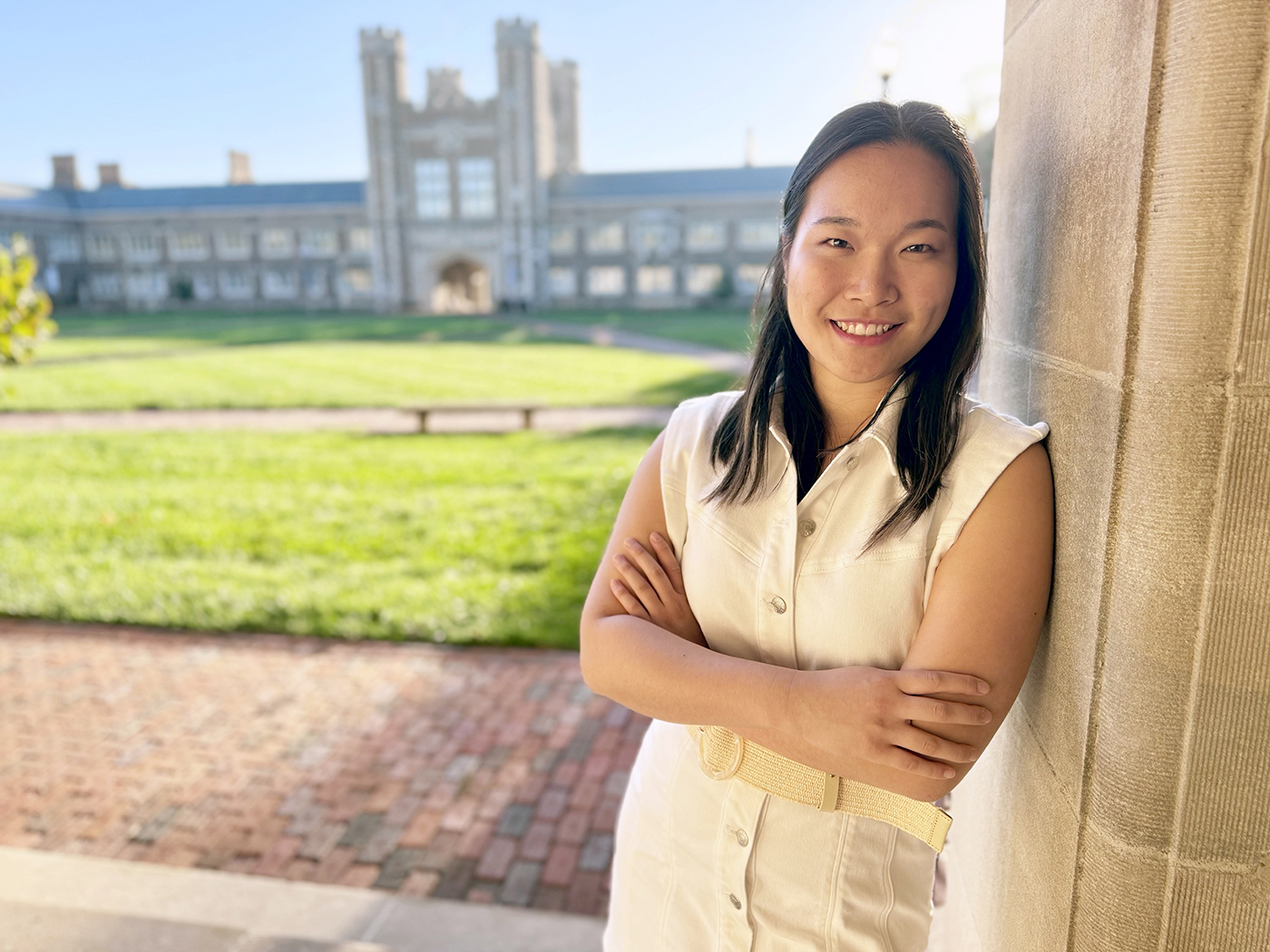
By Zellie McClelland
Tiffany Zhu, Class of 2026, is the first in her family to attend college. The daughter of Chinese immigrants, she arrived on WashU’s campus ready to dive into all the university offers, from a challenging premedical curriculum and epidemiological research to volunteering with cancer survivors. Well into her fourth year, she is still drawing deeply on the opportunities that WashU provides. In doing so, she is positioning herself to become a leading public health physician, committed to creating a system of holistic care so that more people feel connected to healthcare.
Tell me about the MARC USTAR program. How has that experience prepared you for your future career?
The MARC USTAR program created a true community of undergraduate researchers focused on learning to communicate science effectively. Historically, science training hasn’t emphasized communication skills, especially at the undergraduate level.
Anne Roe, an American psychologist, once said: “Nothing in science has any value to society if it is not communicated.” She said this back in the early 1950s, and it’s still so true today.
In the program, we practiced breaking down complex research topics to reach a broader audience. That skill gave me a bigger platform. Last summer, I was selected as part of the competitive Undergraduate Clinical Scholars at the Perelman School of Medicine at the University of Pennsylvania working on an epidemiology project, which was very different from any research I’ve done. I was chosen as one of eight out of a pool of 325 students. What translated directly was my ability to communicate science well. At the end of my summer, I presented eight weeks of data to a room full of physician-scientists with very different areas of expertise. It went really well because I was prepared.
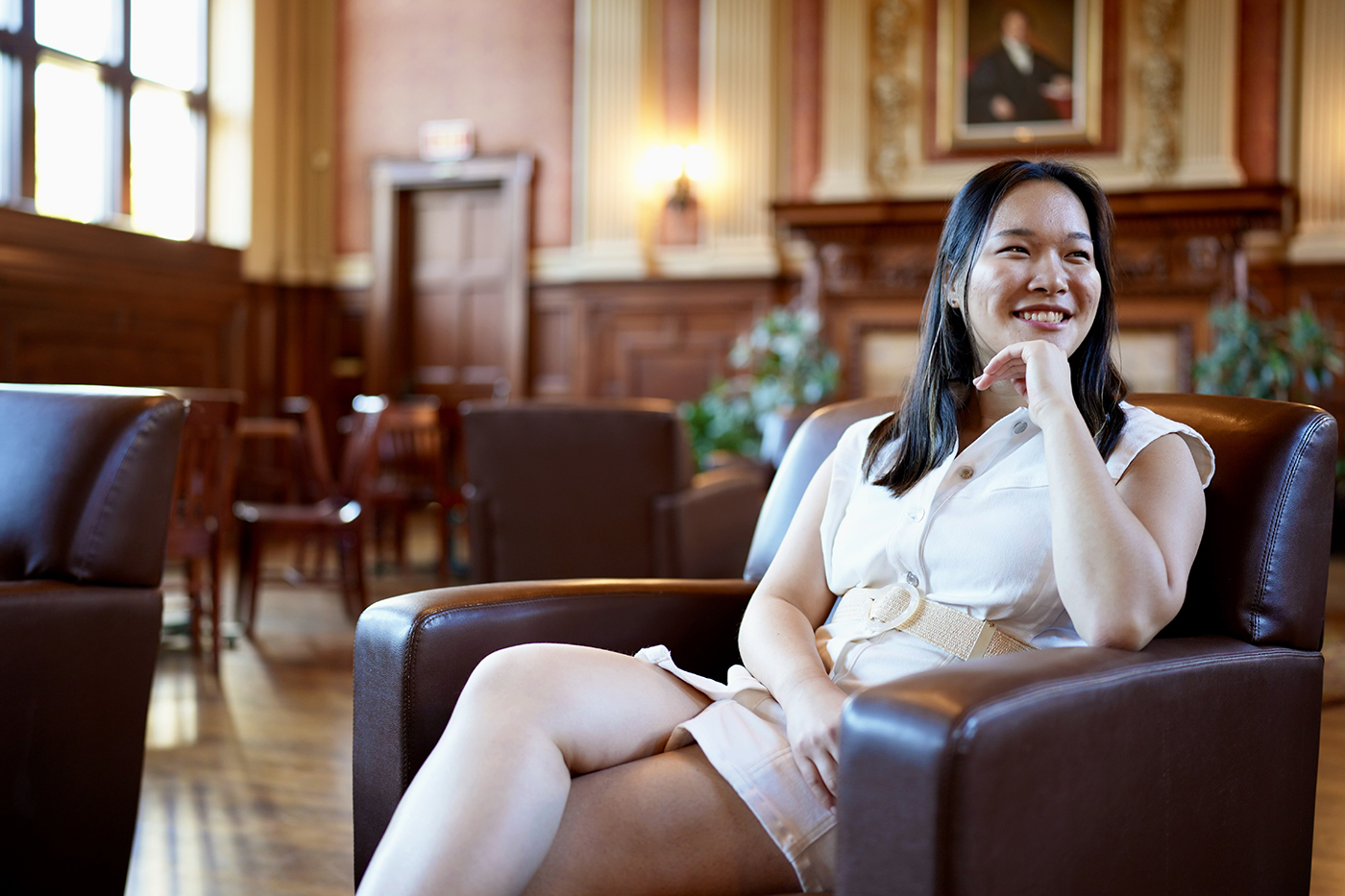
“Those conversations inspired me to launch a survivorship program called PhotoVoice. Participants reflected on life before cancer, during treatment, after treatment, and in survivorship.”
Tiffany Zhu, Class of 2026
Beyond the lab, how have you translated your learning into serving others?
Well, the lab training in communication plays out in other ways too. It has prepared me to “translate” not only for a room full of researchers, but also these communication skills allow me to advocate effectively for patients who might not feel that they have a voice.
Through the two-year Hallmarks of Cancer and Patient Care Ampersand program, I was able to work in support groups affiliated with the Cancer Survivorship program. Patients shared their fears, “I have cancer and I might be physically cured, but I still feel like I’m alone. It’s hard to feel normal when there’s the possibility that the cancer might come back.”
Those conversations inspired me to launch a survivorship program called PhotoVoice. Participants reflected on life before cancer, during treatment, after treatment, and in survivorship. They then captured their lived experiences through photos and captions. The project culminated in a gallery exhibition in which patients shared their reflections publicly. It provided a creative outlet for patients, but it also deepened the community’s understanding of the emotional and psychological journey of survivors. As a future physician, I will carry these lessons forward and continue collaborating with various stakeholders to bridge social gaps so that patients feel heard.
As a first-generation college student, what role did financial support play in shaping your college path?
I’m very grateful to receive the Lindsay Helmholz Scholarship; it offsets the financial costs of college so I can focus on school, my research, and making the world a better place. I don’t have to worry constantly about financial burdens, and as a result, I’ve been able to accomplish milestones in research and in the community. I’ve even implemented new service programs at WashU, like the Cancer Survivorship Program.
A day in the life of Tiffany Zhu
Honestly, imagine the potential of all the students like me who want to advance this country—whether in engineering, environmental science, medicine, or the humanities. Imagine if they had the same opportunities I was given. We’d be driving innovation with some of the brightest minds.
So given these experiences, if you could change one thing in the world, what would it be?
Through epidemiological studies, I hope to reduce the global burden of cancer by identifying hotspots, places where people may lack access to healthy foods or grocery stores, or where they’re exposed to carcinogens. From there, I want to advocate for these communities and help implement preventative measures.
Reducing cancer disparities would be my big dream for change in the world.
Know your power
Deko Devins is the President and CEO of Azimuth Energy, an engineering, construction, and development services company focused on the implementation of renewable energy and energy efficiency strategies. In 2024, Azimuth received Minority Business Enterprise (MBE) certification, distinguishing it as one of the few solar Engineering, Procurement, and Construction (EPC) companies with this designation.
Seizing opportunity, advocating for change
Melanie Goldring, AB ’17, MSP ’19, MSW ’19, has always been driven and tenacious. Throughout her life and career, she has found ways to make productive use of challenges, leaning into the experiences that present themselves and maximizing their inherent opportunities for personal and professional growth.
Redefining leadership, one meal at a time
Andrew Glantz, BSBA ’17, is the founder and CEO of GiftAMeal, a mobile app that provides a meal to someone in need when a user takes a photo at a partner restaurant. What began as a student startup in 2015 has expanded to more than 1,000 restaurants, with over 2.4 million meals provided to families across 44 states.
The long game: A leader for life
At WashU, Chris Swenson, AB ’93, BSBA ’93, learned to explore and embrace diversity of thought that would shape his leadership in the legal and business worlds.
